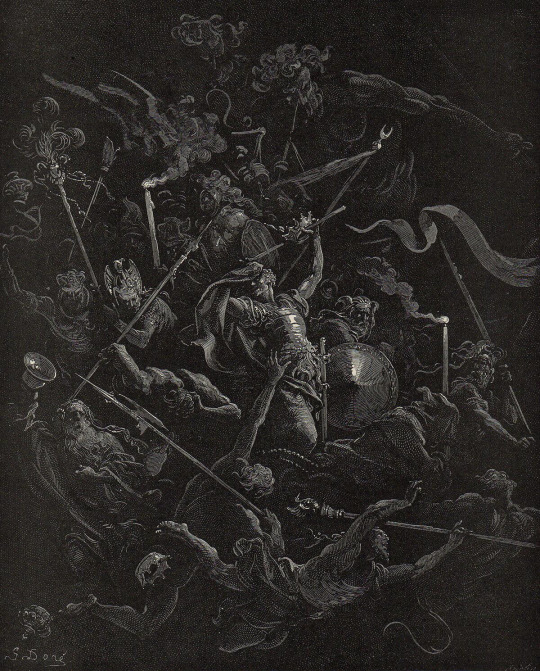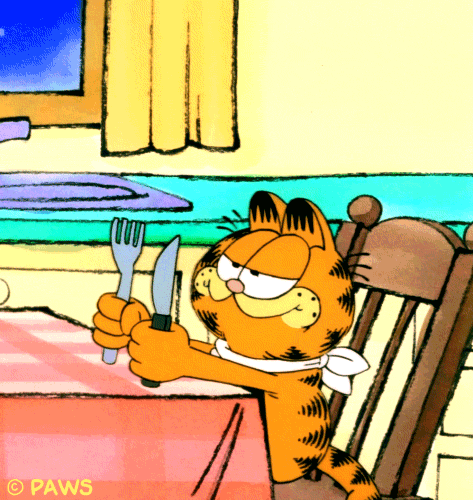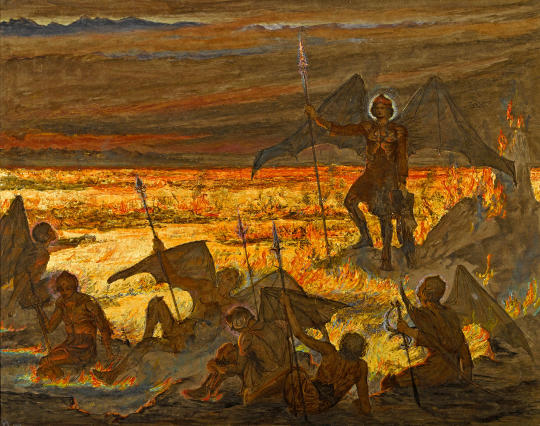#Paradise Lost
Explore tagged Tumblr posts
Text
#jesus fandom#bibleblr#the divine comedy#lucifer#hazbin hotel#hellaverse#hellava boss#good omens#supernatural#jesus christ superstar#paradise lost#the good place#saint young men#prince of egypt#bible fanfiction#polls#lent
632 notes
·
View notes
Text
Ah yes, my favourite Bible fanfics, in no particular order
"Paradise Lost", John Milton
"Divine Comedy", Dante Alighieri
"Good Omens", Terry Pratchett and Neil Gaiman
#fanfiction#fanfic#fanfic recommendation#Bible#go#good omens#neil gaiman#terry pratchett#divine comedy#dante alighieri#paradise lost#john milton
4K notes
·
View notes
Text


John Martin (1789-1854) - Pandemonium, 1841
#john martin#paradise lost#pandemonium#john milton#19th century#victorian gothic#biblical horrors#satan#demons#hell#inferno#religious art#art#painting
3K notes
·
View notes
Text

In Praise of the Stygian. The twisted world of Lilith de Luna. As darkness settles in, ask yourself: Do you run from it, or do you hide?
#goth#metal#gustave dore#hell#satan#satanic#dark aesthetic#darkness#macabre#horror#gothic#goth aesthetic#literature#paradise lost#milton#john milton#inferno#lucifer#lucifer morningstar#hail satan
2K notes
·
View notes
Text
“The mind is its own place, and in itself can make a Heaven of Hell, a Hell of Heaven.”
-John Milton's Paradise Lost



Puella Magi Madoka Magica the Movie - Walpurgis no Kaiten
New key visual featuring Homura and Madoka
https://x.com/madoka_magica/status/1903235175259185192
#booloomagica#walpurgis no kaiten#walpurgisnacht rising#Homura akemi#madoka kaname#Madoka magica#puella magi madoka magica#paradise lost#hell of heaven#heaven of Hell#devil homura#homucifer#madokami#ultimate Madoka
540 notes
·
View notes
Text

Chaos watches as the Rebel Angels are thrown into Hell (Milton's Paradise Lost)
by Gustave Doré
#gustave doré#art#paradise lost#john milton#chaos#fallen angel#fallen angels#war#battle#heaven#paradise#hell#lucifer#satan#angel#angels#demons#christianity#christian#religion#religious art#crown#sceptre#fall#fallen#rebellion#armour#shield#bible#biblical
3K notes
·
View notes
Text

Paradise Lost: Satan in Council (1866/steel engraving) - Gustave Doré
1K notes
·
View notes
Text
(trying not to be banned, but-)

• "Have you heard about the Supreme Archangel and the demon Crowley?" •
(I'll have Archangel Aziraphale WITH BEARD one way or another)
Notes: quote is from Milton's Paradise Lost (of course) ✨but✨ did you know that in my language (italian) the translation of "how awful goodness is" is literally "quanto osceno fosse il bene", meaning...
*cough cough*
"How 🔥obscene🔥 Good was" (*nosebleeding*)
Better go back drawing innocent stuff, like... the Cats!
923 notes
·
View notes
Text

Pd1 blowing smoke on Pd2 what a good man ;;
#⠀⠀ ⠀⠀— art ? or other#⠀⠀ ⠀⠀— suggest#postal dude#postal 1997#postal#postal dude 1#postal 3#postal game#artists on tumblr#postal 1#postal doe#postal 2#postal dude 4#postal dude art#postal dude fanart#postal 2 dude#pd2#postal dude 1997#postal paradise lost#paradise lost#suggestive#postal movie#postal aet#digital artist#suggestive art#this is so stupid#postal dude 2#postal art#postal 2007#postal bd
424 notes
·
View notes
Text
"Beware of an old man in a profession where men usually die young."





#stargate sg1#stargate sg-1#sg1#stargate sg 1#jack o'neill#paradise lost#my paradise lost agenda#beware of an old man#richard dean anderson
598 notes
·
View notes
Text






when im mad i chew on this photo of postal dude
650 notes
·
View notes
Text
"I think Homer outwits most writers who have written on the War [fantasy archetype], by not taking sides.
The Trojan war is not and you cannot make it be the War of Good vs. Evil. It’s just a war, a wasteful, useless, needless, stupid, protracted, cruel mess full of individual acts of courage, cowardice, nobility, betrayal, limb-hacking-off, and disembowelment. Homer was a Greek and might have been partial to the Greek side, but he had a sense of justice or balance that seems characteristically Greek — maybe his people learned a good deal of it from him? His impartiality is far from dispassionate; the story is a torrent of passionate actions, generous, despicable, magnificent, trivial. But it is unprejudiced. It isn’t Satan vs. Angels. It isn’t Holy Warriors vs. Infidels. It isn’t hobbits vs. orcs. It’s just people vs. people.
Of course you can take sides, and almost everybody does. I try not to, but it’s no use; I just like the Trojans better than the Greeks. But Homer truly doesn’t take sides, and so he permits the story to be tragic. By tragedy, mind and soul are grieved, enlarged, and exalted.
Whether war itself can rise to tragedy, can enlarge and exalt the soul, I leave to those who have been more immediately part of a war than I have. I think some believe that it can, and might say that the opportunity for heroism and tragedy justifies war. I don’t know; all I know is what a poem about a war can do. In any case, war is something human beings do and show no signs of stopping doing, and so it may be less important to condemn it or to justify it than to be able to perceive it as tragic.
But once you take sides, you have lost that ability.
Is it our dominant religion that makes us want war to be between the good guys and the bad guys?
In the War of Good vs. Evil there can be divine or supernal justice but not human tragedy. It is by definition, technically, comic (as in The Divine Comedy): the good guys win. It has a happy ending. If the bad guys beat the good guys, unhappy ending, that’s mere reversal, flip side of the same coin. The author is not impartial. Dystopia is not tragedy.
Milton, a Christian, had to take sides, and couldn’t avoid comedy. He could approach tragedy only by making Evil, in the person of Lucifer, grand, heroic, and even sympathetic — which is faking it. He faked it very well.
Maybe it’s not only Christian habits of thought but the difficulty we all have in growing up that makes us insist justice must favor the good.
After all, 'Let the best man win' doesn’t mean the good man will win. It means, 'This will be a fair fight, no prejudice, no interference — so the best fighter will win it.' If the treacherous bully fairly defeats the nice guy, the treacherous bully is declared champion. This is justice. But it’s the kind of justice that children can’t bear. They rage against it. It’s not fair!
But if children never learn to bear it, they can’t go on to learn that a victory or a defeat in battle, or in any competition other than a purely moral one (whatever that might be), has nothing to do with who is morally better.
Might does not make right — right?
Therefore right does not make might. Right?
But we want it to. 'My strength is as the strength of ten because my heart is pure.'
If we insist that in the real world the ultimate victor must be the good guy, we’ve sacrificed right to might. (That’s what History does after most wars, when it applauds the victors for their superior virtue as well as their superior firepower.) If we falsify the terms of the competition, handicapping it, so that the good guys may lose the battle but always win the war, we’ve left the real world, we’re in fantasy land — wishful thinking country.
Homer didn’t do wishful thinking.
Homer’s Achilles is a disobedient officer, a sulky, self-pitying teenager who gets his nose out of joint and won’t fight for his own side. A sign that Achilles might grow up someday, if given time, is his love for his friend Patroclus. But his big snit is over a girl he was given to rape but has to give back to his superior officer, which to me rather dims the love story. To me Achilles is not a good guy. But he is a good warrior, a great fighter — even better than the Trojan prime warrior, Hector. Hector is a good guy on any terms — kind husband, kind father, responsible on all counts — a mensch. But right does not make might. Achilles kills him.
The famous Helen plays a quite small part in The Iliad. Because I know that she’ll come through the whole war with not a hair in her blond blow-dry out of place, I see her as opportunistic, immoral, emotionally about as deep as a cookie sheet. But if I believed that the good guys win, that the reward goes to the virtuous, I’d have to see her as an innocent beauty wronged by Fate and saved by the Greeks.
And people do see her that way. Homer lets us each make our own Helen; and so she is immortal.
I don’t know if such nobility of mind (in the sense of the impartial 'noble' gases) is possible to a modern writer of fantasy. Since we have worked so hard to separate History from Fiction, our fantasies are dire warnings, or mere nightmares, or else they are wish fulfillments."
- Ursula K. Le Guin, from No Time to Spare, 2013.
#ursula k. le guin#homer#quote#quotations#the iliad#trojan war#storytelling#fantasy#fiction writing#war#conflict#tragedy#john milton#paradise lost#greek mythology
3K notes
·
View notes
Text


It's good to be a dc fan.

#dc comics#dccomics#dcu#superman#batman#blue beetle#the batman#penguin#the peguin#superman 2025#supergirl woman of tomorrow#peacemaker#joker folie a deux#waller#booster gold#batman brave and the bold#lanterns#Green Lantern#the authority#paradise lost#swamp thing#superman and lois#my adventures with superman#the sandman#creature commandos#james gunn dcu#james gunn's dcu#dcu studios#dc is better than marvel
534 notes
·
View notes
Text

John Martin (1789-1854) - Satan viewing the Ascent to Heaven, 1824
from 'The Paradise Lost of John Milton with illustrations by John Martin', 1846
#john martin#paradise lost#satan viewing the ascent to heaven#john milton#19th century#victorian gothic#biblical horrors#satan#religious art#art#illustration
988 notes
·
View notes
Text

In Praise of the Stygian. A cold breath runs down the back of my neck. I turn, yet I am only faced with darkness. A faint whisper beckons me forward. "Come to the dark," it says, "Join us." Do I move closer?
#goth#metal#gustave dore#hell#satan#satanic#dark aesthetic#darkness#macabre#horror#gothic#goth aesthetic#literature#paradise lost#milton#john milton#inferno#dante#dante alighieri#lucifer#lucifer morningstar#hellfire#hail satan
650 notes
·
View notes
Text

Satan awakening his legions by Estella Canziani
#estella canziani#art#satan#lucifer#legions#fallen angel#fallen angels#hell#paradise lost#religious art#religion#christianity#christian#angels#demons#angels and demons#romantic#romanticism#british#john milton
542 notes
·
View notes